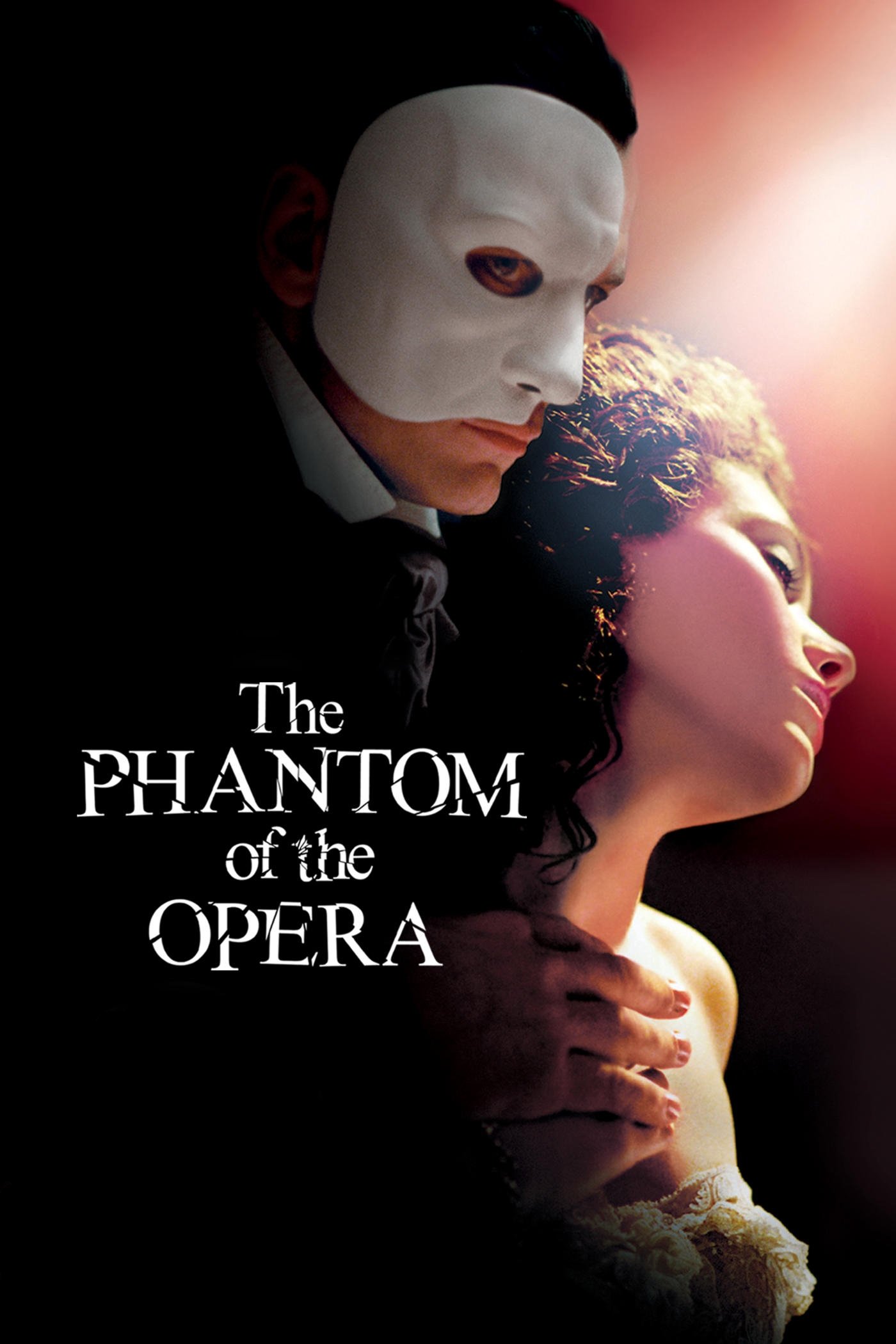 |
| The Phantom and Christine from the 2005 Broadway Play |
 |
| Phantom of the Opera - 2004 |
The Novel was transformed into a musical by Andrew Lloyd Weber in 1988. In 2004, the musical was adapted into a film directed by Joel Schumacher, starring Emmy Rossum, Gerard Butler, and Patrick Wilson. This adaptation is among the more popular ones, and its music is what I will be sampling from. The music throughout the film is what drives the film's emotional impact. The vocals, particularly Emmy's, are exceptionally powerful, and her range is impressive. Without her talent and commitment, the scores would not convey as much emotion.
The peak of the film occurs during the number "Past the Point of No Return". Here, the phantom lures Christine Daaé into a passionate and perilous musical climax. The song occurs in the latter part of the musical, when Christine, after being manipulated and lured by the Phantom's mysterious presence and promises, is drawn into his lair for a final confrontation. Out of the musical numbers featured, this accomplishes the most emotionally. Here we see Christine fighting a battle within herself, whether stay in the light, or succumb to the darkness of the Phantom. Christine’s voice, initially fragile and hesitant, grows in intensity as she is drawn deeper into the Phantom’s world. The vocal line moves from a light, lyrical quality into a more operatic and dramatic range, mirroring the increasing stakes. In contrast, the Phantom’s voice is dark and commanding, an embodiment of power and persuasion.
Past the Point of no Return - Scene from the 2004 Film
On a personal level, I am struck by how the music not only serves as a tool for storytelling but also evokes a profound emotional response. The haunting, melodic phrases that echo in the orchestration create a sense of inevitability, while Christine’s vocal ascent is both beautiful and tragic. This creates a juxtaposition of conflicting emotions—desire and dread, power and vulnerability—that resonates deeply. The final moment of the song, when Christine succumbs to the Phantom’s will, is chilling both musically and dramatically. What truly does it for me is not the main score, but the final clip of the film. During the finale, previous scores are sampled together with "Past the Point of no Return" to craft an intense ending.
The Phantom of the Opera 2004 - Finale
Overall, "The Point of No Return" stands as one of the most psychologically complex and musically sophisticated pieces in The Phantom of the Opera, showcasing Webber’s skill in combining musical elements with narrative development. Its themes of manipulation, desire, and loss resonate both in the context of the musical and as broader social commentary.
Citations:
The Phantom Pf the Opera Musical Breakdown - Search Videos. www.bing.com/videos/riverview/relatedvideo?q=the+phantom+pf+the+opera+musical+breakdown&mid=A24B28057495260ABF43A24B28057495260ABF43&FORM=VIRE.
Wikipedia contributors. “The Phantom of the Opera (1986 Musical).” Wikipedia, 10 Nov. 2024, en.wikipedia.org/wiki/The_Phantom_of_the_Opera_(1986_musical).
“Phantom of the Opera 2004 Musical Analysis - Bing.” Bing, www.bing.com/search?q=phantom+of+the+opera+2004+musical+analysis&qs=n&sp=-1&lq=0&pq=phantom+of+the+opera+2004+musical+analysis&sc=0-42&sk=&cvid=345B6416554F4B829B879E69D667B041&ghsh=0&ghacc=0&ghpl=&FPIG=C603A2FB30EB4A9C98BDF9AA4B5AE41A&first=11&FORM=PERE.
This is one of my favorite musicals/movies to watch. While I have never seen it live, I hope to one day (it saddens me that it is no longer on Broadway). I have not seen it in quite some time but will watch it this weekend lol. I think you would like "Defying Gravity" from Wicked. This is another emotional song that speaks to a character’s sense of freedom and defiance. It's intense, dramatic, and filled with powerful vocals just like this. Or even "The Last Night of the World" from Miss Saigon. It is filled with a sense of desperation and longing, similar to the tension and emotional stakes of "The Point of No Return."
ReplyDeleteI wanted to say that I really liked your ideas about “The Phantom of the Opera.” The encouragement you gave about the emotional display in “Past the Point of No Return” got the conflict between Christine and the Phantom on the best natural without exaggeration. It is strange how this music enhances the tension that exists in their personalities. I look forward to the second time watching the film with what you stated in mind!
ReplyDelete